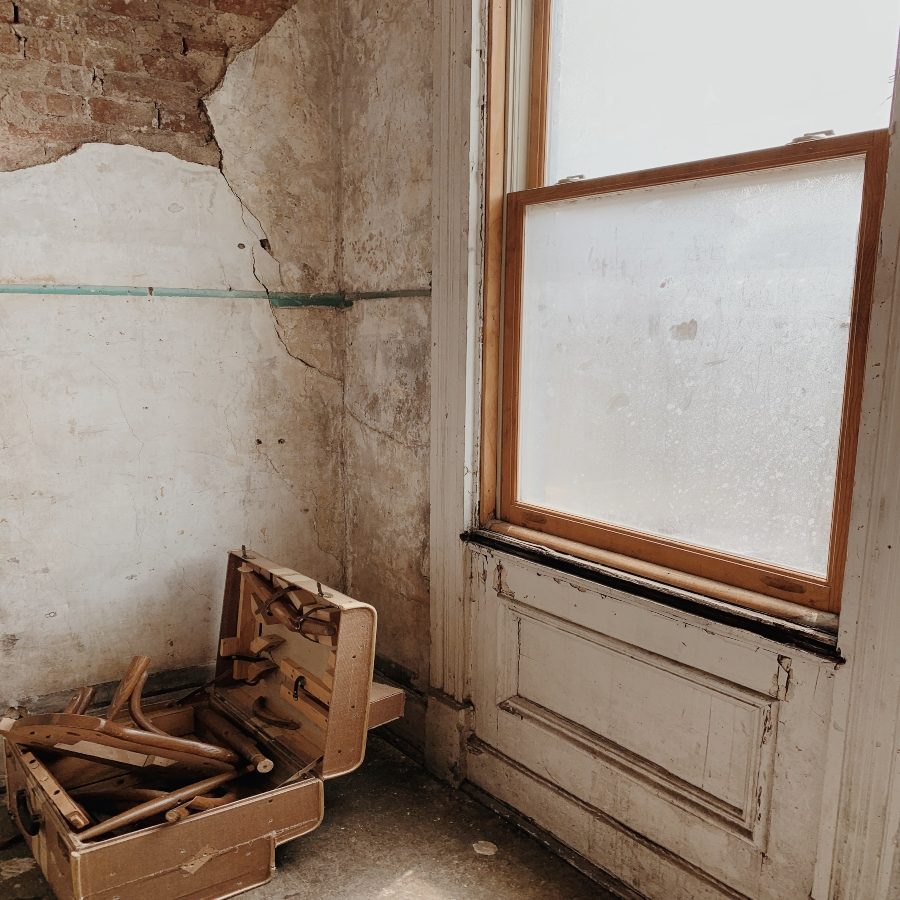
1918
Like every other night, Finkus creaks the splintery door, slips out of his only shirt and folds it over a chair. He smooths the coarse wool with his calloused hands, wets his thumb and rubs the spots. One, a splotch of mud from when he carried a lady’s valise to a cab. Another one, grease from fixing a wheel on Goldman’s pushcart.
Like every other night, Esther, his wife, looks as empty as bones, and fusses over a stew. A sliver of beef, but mostly the potatoes and carrots that Stein the grocer was going to throw away. Scrape the bad off of everything, he told her, and it will taste like new.
A little girl, she was, in Russia, and one night her father doesn’t come home. Wandered into the wrong part of town and got horse-kicked in the head. Soon after, a smuggled trip to America. Her mother only, and one suitcase between them. Later, she met Finkus, with his smile and his hair and his head of ideas. On her deathbed, Esther’s mother called him a good man, “like your father,” she said.
Like every other night, Finkus slumps onto the floor mattress stuffed with old rags. Too tired to eat. Too weighted down with the illness growing inside of him. The illness that will kick him flat like a horse’s hoof.
Esther will sit alone at the table until the stew cools and wash the plate and put it back in the cupboard. Then, like every other night, Esther will pick up his shirt, and soak spots with hot water and use the kettle steam to smooth out the wrinkles before she sneaks it back over the chair.
And no sooner does she finish, Finkus grunts himself up and comes to the table. Hungry, he is for once. Tonight, won’t be like every other night. Tonight will be the night he tells her about the illness. Isn’t that what a wife is for, he thinks, to share?
He sits down in front of the still-warm plate. He notices his shirt in a way he never has. Cleaner, he thinks, and smoother, too. He looks at Esther for an answer. She looks at him for a smile. Clink of forks on the supper plates. She didn’t ask for this, he thinks, and rather than tell her tonight about the illness, he swallows it down with the stew.
Originally published in Fictive Dream
Francine Witte’s flash fiction and poetry have appeared in numerous journals. Most recently, her stories have been in Best Small Fictions and Flash Fiction America. Her latest flash fiction book is RADIO WATER (Roadside Press.) Her upcoming collection of poetry, Some Distant Pin of Light is forthcoming from Cervena Barva Press. She lives in NYC. Visit her website francinewitte.com.
Submit Your Stories
Always free. Always open. Professional rates.
